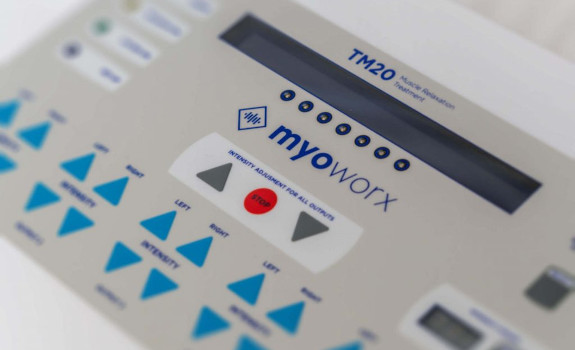Introduction
In recent years, the awareness of concussions has markedly increased, leading to a greater understanding of their potential long-term effects. As athletes, parents, and medical professionals become more educated on concussion symptoms and the importance of proper diagnosis and treatment, concussion clinics have emerged as essential resources. These specialized facilities not only provide accurate assessments but also offer tailored therapy treatment plans aimed at ensuring full recovery. This article aims to explore the role of concussion clinics, the significance of online concussion tests, common concussion symptoms, and various therapy treatments available.
Concussion Clinics: Your First Stop for Accurate Diagnosis and Care
When it comes to understanding concussions, knowledge is power. Concussion clinics are designed to be your first stop for both diagnosis and care. They pediatric concussion clinic serve as comprehensive centers where individuals can receive expert evaluations from professionals who specialize in brain injuries.
What is a Concussion Clinic?
A concussion clinic is a healthcare facility dedicated to diagnosing and treating concussions. These clinics are often staffed with a multi-disciplinary team that includes neurologists, sports medicine specialists, physical therapists, and occupational therapists. Their collective expertise ensures an accurate diagnosis and effective care plans tailored to individual needs.
Why Choose a Concussion Clinic?
- Specialized Knowledge: Professionals in these clinics are trained specifically in managing brain injuries. Comprehensive Testing: Clinics often utilize advanced diagnostic tools that may not be available at general practice offices. Personalized Treatment Plans: Therapy treatments are customized based on individual symptoms and recovery goals.
The Importance of Accurate Diagnosis
An accurate diagnosis is crucial for effective management of concussions. Misdiagnosis can lead to inappropriate treatment or overlooking underlying issues that could complicate recovery.
How Are Concussions Diagnosed?
Diagnosis typically involves:
Patient History Physical Examination Neurocognitive Testing Imaging Tests (if necessary)Each step plays a vital role in ensuring that patients receive the right care promptly.
Understanding Concussion Symptoms
Recognizing concussion symptoms is essential for timely intervention. Symptoms can vary widely from one person to another but generally fall into four categories: physical, cognitive, emotional, and sleep-related.
Physical Symptoms
- Headaches Nausea Dizziness Balance Problems
Cognitive Symptoms
- Difficulty concentrating Memory issues Slowed processing speed
Emotional Symptoms
- Irritability Sadness Increased anxiety
Sleep Disturbances
- Insomnia Sleeping more than usual
Being aware of these symptoms can greatly influence outcomes; early recognition leads to better management strategies.
Online Concussion Test: A Convenient Option?
With advancements in technology, many clinics now offer an online concussion test that allows individuals to assess their symptoms remotely before visiting the clinic.
What Does an Online Concussion Test Involve?
Typically, an online test will:
Ask about current symptoms. Assess cognitive function through simple tasks. Provide immediate feedback based on answers given.These tests serve as preliminary assessments but should not replace professional evaluation.
Therapy Treatments Available at Concussion Clinics
Once diagnosed through comprehensive assessments at a concussion clinic, patients may benefit from various therapy treatments tailored to their specific needs.

Physical Therapy Treatments
Physical therapy focuses on improving balance and coordination through exercises specifically designed for those recovering from concussions.
Common Techniques Include:
Vestibular Rehabilitation: Helps with balance issues. Strength Training: Targets muscle weaknesses affecting stability. Manual Therapy: Hands-on techniques to relieve tension.Cognitive Therapy Treatments
Cognitive rehabilitation aims to address difficulties with memory or concentration post-injury through engaging exercises that stimulate cognitive functioning.
Techniques May Include:
Computerized Cognitive Training: Using software designed for brain training. Memory Exercises: Practicing recall with structured activities.Psychological Support and Counseling
Psychological support is crucial as emotional well-being often takes a hit after a concussion.
Services Provided May Include:
Individual Counseling: One-on-one sessions focused on coping strategies. Group Therapy: Sharing experiences with others facing similar challenges.The Role of Follow-Up Care in Recovery
Follow-up care is indispensable in monitoring progress after initial treatment phases have concluded.
Why Is Follow-Up Care Important?
Ensures Recovery Progression: Regular check-ins help track improvement. Adjusts Treatment Plans as Necessary: If symptoms persist or change, modifications can be made quickly.FAQ Section
1. What are common signs that I might have a concussion?
Common signs include headaches, dizziness, confusion, balance problems, or changes in mood such as irritability or sadness.
2. How long does recovery from a concussion typically take?
Recovery durations vary by individual; however, most people recover within one week to several months depending on the severity of the injury.
3. Can I return to sports after suffering from a concussion?
It’s important not to rush back into sports without clearance from a healthcare professional specializing in concussions; premature return increases risks for further injuries.
4.Are online concussion tests reliable?
While an online test can provide preliminary insights into your condition, it should never replace an evaluation by healthcare professionals at a dedicated clinic for comprehensive diagnosis and treatment options.
5.What types of therapy treatments do concussion clinics offer?
Concussion clinics may offer physical therapy focused on balance improvement as well as cognitive therapy aimed at enhancing memory functions among other treatments tailored specifically for each patient’s needs.
6.Is psychological support necessary after suffering from a concussion?
Yes! Emotional health often takes hits following brain injuries; psychological support helps patients navigate these challenges effectively during their recovery journey.
Conclusion
As awareness surrounding concussions continues to grow alongside advancements in medical research and technology, the importance of seeking specialized care becomes ever more critical. Concussion clinics stand out as invaluable resources—your first stop for accurate diagnosis and individualized care plans addressing every aspect of recovery—from symptom recognition through personalized therapy treatments aimed at restoring health fully while mitigating risks associated with returning prematurely back into daily activities or sports engagements.
In navigating this complex landscape following any head injury—whether mild or severe—remember that you don't have to go it alone; knowledgeable professionals await at your local concussion clinic prepared not just diagnose but guide your path towards optimal health restoration effectively!